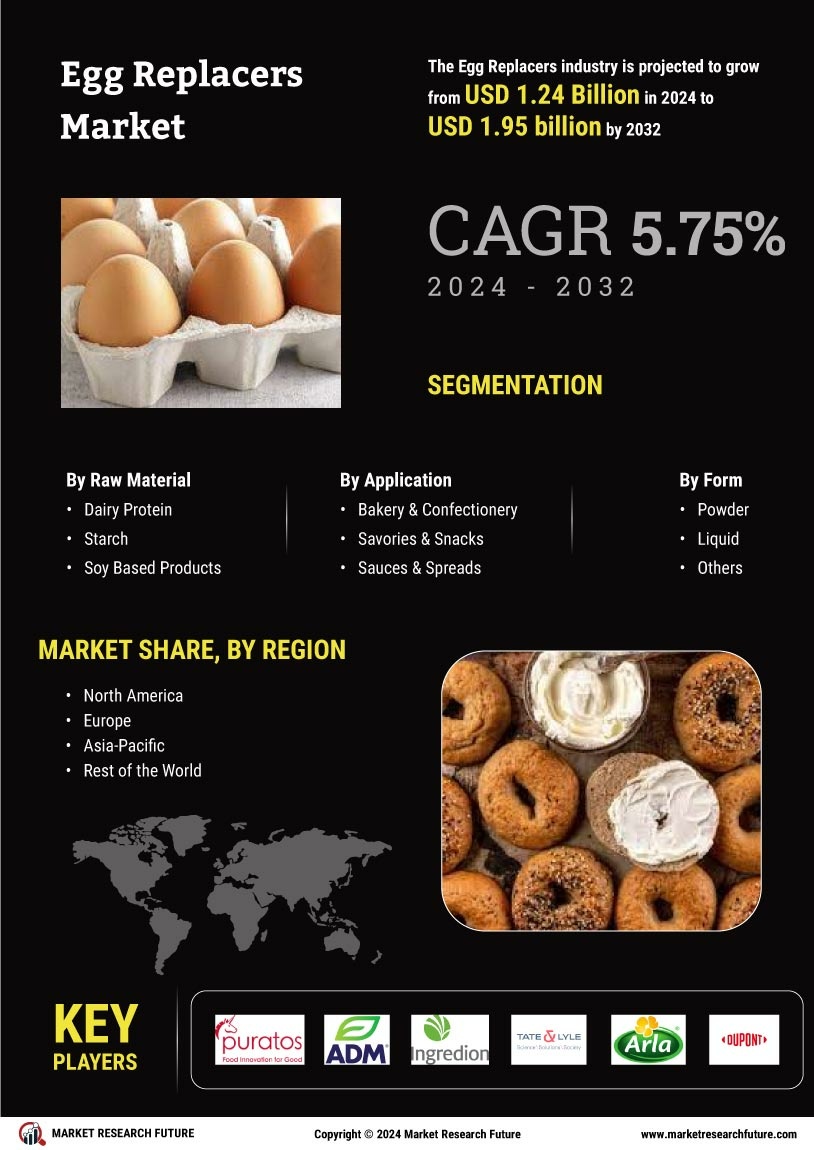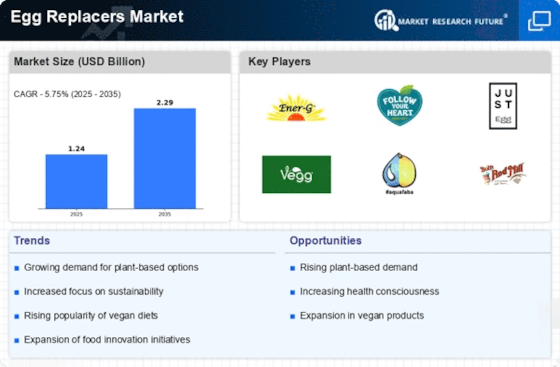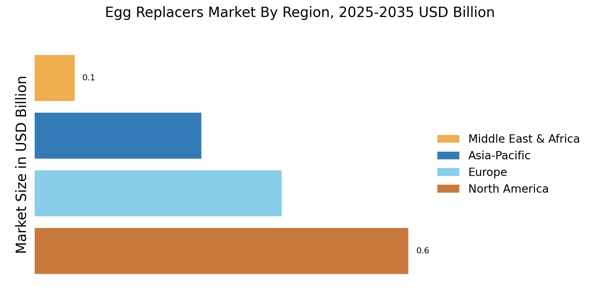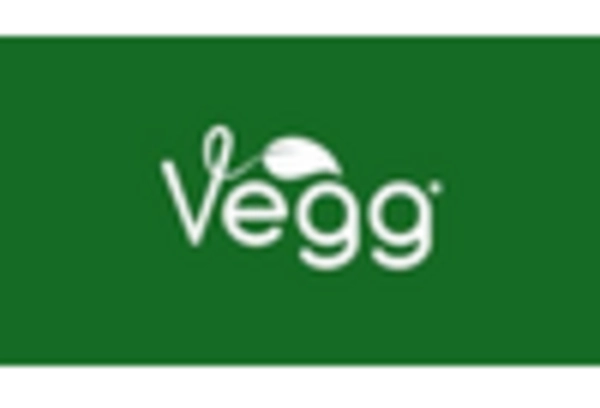Rising Awareness of Food Allergies
The increasing prevalence of food allergies, particularly egg allergies, is driving demand for egg replacers in the Egg Replacers Market. As awareness of food sensitivities grows, consumers are actively seeking alternatives that do not contain common allergens. This trend is particularly evident among parents who are cautious about introducing eggs into their children's diets. The market for egg replacers is expected to expand as more individuals seek safe and nutritious options. Recent studies suggest that approximately 2% of children are affected by egg allergies, which has prompted food manufacturers to innovate and create allergen-free products. This growing awareness is likely to sustain the momentum of the Egg Replacer Market in the coming years.
Consumer Demand for Clean Label Products
The trend towards clean label products is significantly influencing the Egg Replacers Market. Consumers are increasingly scrutinizing ingredient lists and favoring products that are perceived as natural and free from artificial additives. This shift is prompting manufacturers to reformulate their egg replacers to meet these clean label demands. The market is witnessing a rise in demand for egg substitutes made from whole food ingredients, such as flaxseed, chia seeds, and aquafaba. According to Market Research Future, the clean label segment is expected to grow at a compound annual growth rate of 10% over the next five years. This trend indicates that the Egg Replacer Market must adapt to evolving consumer preferences for transparency and simplicity in food products.
Increasing Vegan and Vegetarian Population
The rise in the number of individuals adopting vegan and vegetarian diets is a notable driver for the Egg Replacers Market. As consumers become more health-conscious and environmentally aware, they are increasingly seeking alternatives to animal products. Reports indicate that the vegan population has grown significantly, with estimates suggesting a 300% increase in the last decade. This shift in dietary preferences has led to a corresponding demand for egg replacers, which are essential in various culinary applications. The Egg Replacer Market is thus witnessing a surge in product innovation, with manufacturers developing diverse options to cater to this expanding demographic. The growing acceptance of plant-based diets is likely to continue influencing consumer choices, further propelling the market forward.
Technological Advancements in Food Production
Technological innovations in food production are playing a crucial role in shaping the Egg Replacers Market. Advances in food science and technology have enabled the development of high-quality egg substitutes that closely mimic the functional properties of eggs. For instance, the use of hydrocolloids and emulsifiers has improved the texture and binding capabilities of egg replacers, making them suitable for a wide range of applications, from baking to cooking. The market is projected to grow as these technologies evolve, with a potential increase in market size by approximately 20% over the next five years. This trend indicates that the Egg Replacer Market is not only adapting to consumer demands but also enhancing product quality through scientific advancements.
Expansion of the Bakery and Confectionery Sector
The growth of the bakery and confectionery sector is a significant driver for the Egg Replacers Market. As the demand for baked goods continues to rise, manufacturers are increasingly incorporating egg replacers to cater to diverse dietary needs. The bakery sector is projected to grow at a rate of 5% annually, creating a substantial opportunity for egg replacers. This trend is particularly relevant as consumers seek vegan and allergen-free options in baked products. The Egg Replacer Market is likely to benefit from this expansion, as more bakeries and confectioneries explore innovative formulations that utilize egg substitutes. This alignment with market trends suggests a promising future for egg replacers in the food industry.

















